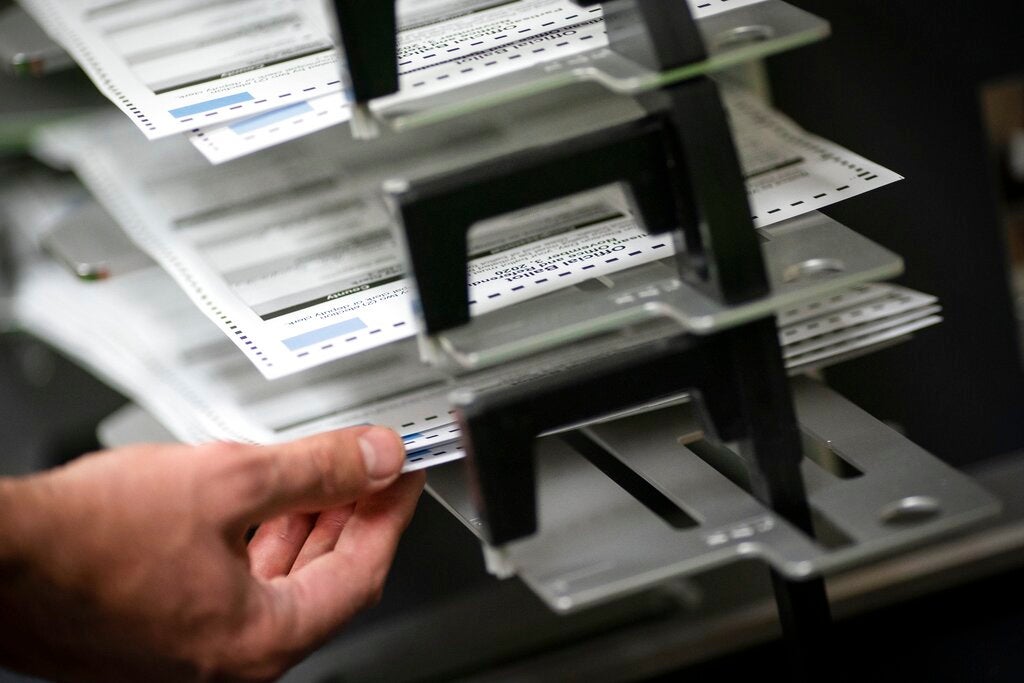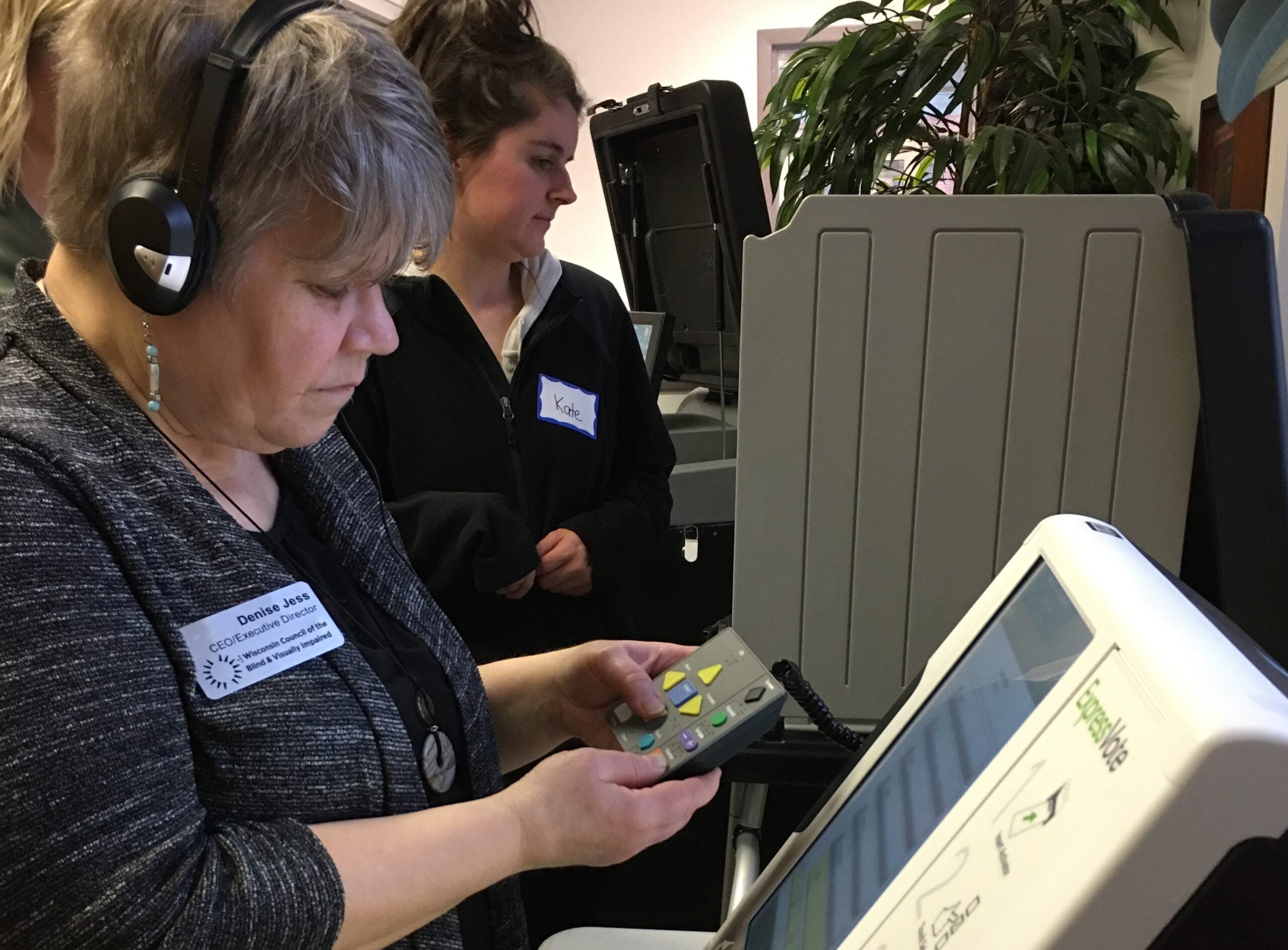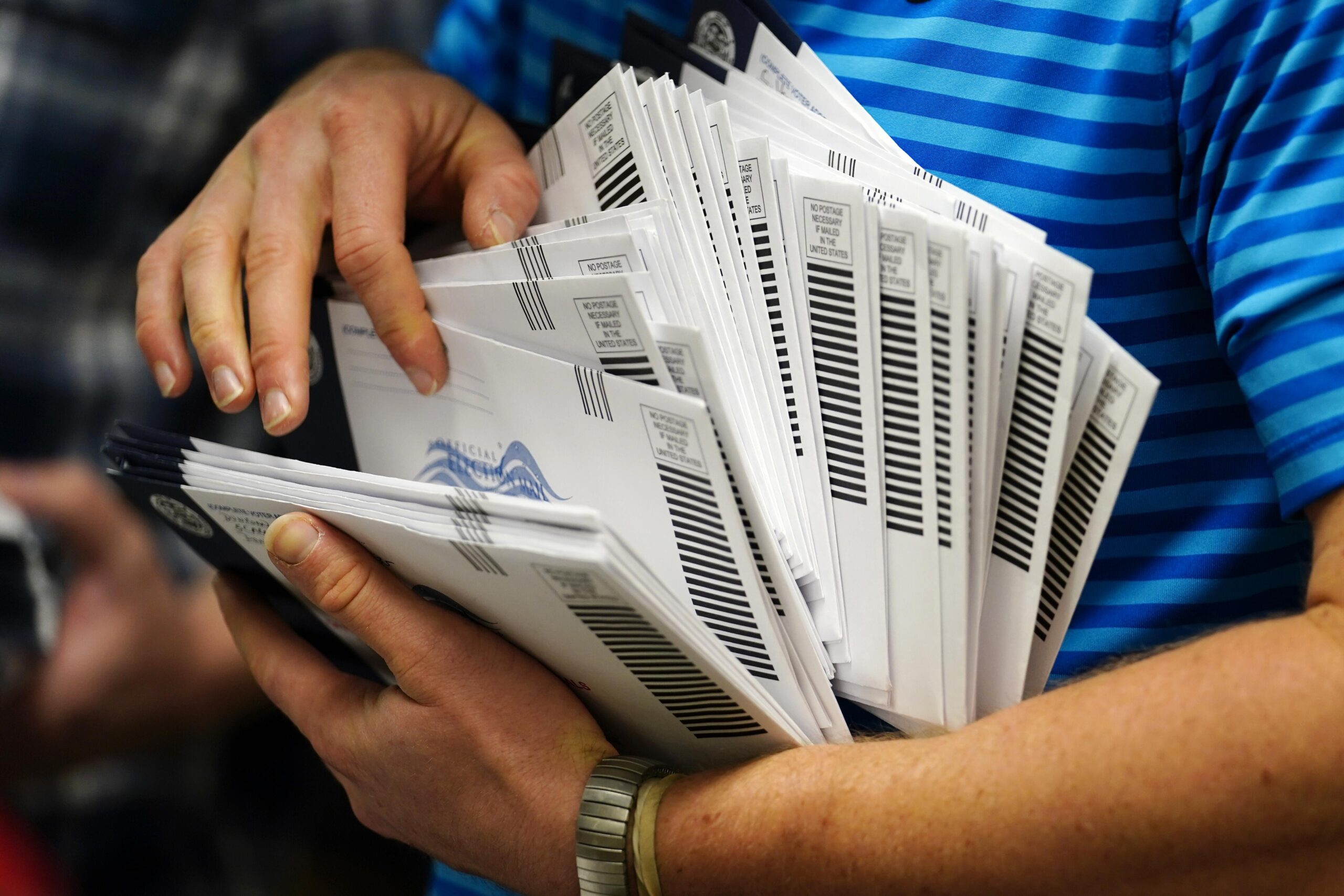A new lawsuit seeks to allow Wisconsin voters with disabilities to vote electronically. It argues a voter with disabilities who requires help from another person to read or mark their ballot is deprived of a constitutional guarantee to a secret ballot.
Deployed military and people living abroad can vote in Wisconsin elections via email or online. The lawsuit asks the court to allow voters with disabilities to do the same, in order to comply with state and federal laws ensuring equal access and accommodations.
Disability Rights Wisconsin and the League of Women Voters of Wisconsin filed the case against the Wisconsin Elections Commission in Dane County court on Monday.
News with a little more humanity
WPR’s “Wisconsin Today” newsletter keeps you connected to the state you love without feeling overwhelmed. No paywall. No agenda. No corporate filter.
“Wisconsin law currently provides no exception for voters with disabilities, who are treated unequally and face real and considerable hurdles to participating in absentee voting,” the lawsuit states. “Instead, Wisconsin law requires that all non-military, non-overseas mail-in absentee voters receive a paper ballot by mail, mark that ballot by hand, and send it back by mail or deliver it in person.”
“Any one of those steps can render a paper ballot inaccessible to voters with disabilities,” especially those who have difficulty reading or writing, the lawsuit says.
Four individuals with disabilities also joined as plaintiffs. Two are unable to see and two others can read a paper ballot but “they do not have sufficient control of their hands to mark it,” according to the filing.
Electronic ballots, however, could be marked by most at-home accessibility devices such as electronic screen readers, the plaintiffs argue.
“Voters whose disabilities prevent them from voting absentee without an accessibility device are therefore presented with a choice that individuals without disabilities are not: forgo voting by absentee ballot, or relinquish their constitutional right to vote privately,” the lawsuit argues.
Kit Kerschensteiner, the director of legal and advocacy services at Disability Rights Wisconsin, said the case is about everyone having equal access to voting.
“It’s about having that right that we all have as citizens to cast our ballot in a private and independent way,” Kerschensteiner said.
Wisconsin municipalities previously distributed electronic absentee ballots to anyone who requested one, the lawsuit says, until a 2011 law restricted that option to only deployed military and those permanently overseas.
A federal judge found the law violated the First and 14th Amendments, but that was overturned on appeal. The lawsuit argues that case “did not specifically address the unequal treatment and burdens faced by Wisconsin voters with disabilities.”
The lawsuit argues that other states allow access to electronic ballots, and Wisconsin “already has the foundational elements of such a program in place” for voters who are overseas.
“Thirteen other states have already done this,” Debra Cronmiller, executive director of the League of Women Voters of Wisconsin, told WPR. “This isn’t a newfangled idea for Wisconsin. This is about guaranteeing constitutional rights for everyone.”
Cronmiller said both organizations that brought the suit have long been part of the Disability Vote Coalition, and says the WEC has been aware of these issues for years.
In 2022, the commission voted to tell local clerks they must allow disabled voters to request help from someone else to return their absentee ballots.
Absentee ballots have been a point of contention in the state, where four of the past six presidential elections were decided by less than a percentage point. The Wisconsin Supreme Court is reconsidering its own ruling limiting the use of absentee ballot drop boxes.
People with disabilities make up about 23 percent of Wisconsin’s population, according to the Centers for Disease Control and Prevention.
The elections commission declined to comment on the case.
Wisconsin Public Radio, © Copyright 2025, Board of Regents of the University of Wisconsin System and Wisconsin Educational Communications Board.






